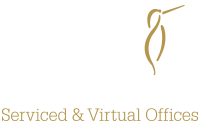
The battle between Small Businesses and Corporates for flexible workspace solutions
September 14, 2019
Halloween spooky figures and tricky treats
October 16, 201911 simple rules of etiquette when working in a shared workspace
Workspace
One of the challenges of any small business is to find a suitable location to run and manage their business. With the increasing opportunities of accessing cost effective flexible workspace solutions in and around cities the trend of working from home is slowly changing.As more business owners discover that there really is a better solution than working within unsuitable cramped spaces in their homes. Workers are relocating to places within easy reached locations from where they live.
There they will find workspace solutions that meets all of their needs. From suitable working space, access to technology, admin services and meeting rooms. They will find a welcoming hustle and bustle of other small businesses looking to network.
Whilst this gives business owners all they need working in a shared office is not the same as working from your house nor is it a home away from home. It is a place of work, just like any other office and to ensure everyone can work effectively basic etiquette needs to be observed.
1. Mobile Phone Ring Tones
One of the biggest causes and earns its place at the top of our list is noise disruption due to the constant sound of phones ringing. From irritating mobile ring tones to constant beeping of notifications it’s enough to drive anyone mad.Where possible: phones should be set to vibrating or utilise a pleasant traditional ring tone kept at low volume.
2. Phone calls
Following on from number one hence second on the list is answering and taking of phone calls. Whilst its polite to say that others have no interest in your phone conversations loud voices can be hard to ignore.Where possible: phone calls should be taken away from the centre of the office, perhaps using a breakout space or meeting room.
3. Movement
Some of us like to move around when working. We might have a habit of pacing around the room whilst on the phone or when brainstorming. Having someone meandering around the room can be very disruptive.Where possible: keep movement to a minimum, if you need to stretch your legs go for a walk outside.
4. Meetings
If you plan to welcome guests for a meeting ensure you book a meeting room. Having crowds of people waiting or hanging around your desk will make the space uncomfortable for others.Where possible: be ready to accept your guests by booking a room in advance and advising the Receptionist of the names of your attendees.
5. Printer usage
When using printing facilities many of us have a bad habit of printing and then leaving documents either on or trapped in the machine. Not to mention the annoyance of using all the paper and not replacing it. Be mindful that you won't have a monopoly over a machine.Where possible: be careful what you print ensuring you adopt a print and collect policy. Refill the trays with paper and if you need help be quick to inform the workspace staff.
6. Food
Some serviced offices will provide access to microwaves and other electrical devices to make or heat up food. Whilst this provides a cost-effective way to have your lunch it can cause bad odours to permeate around the office.Where possible: only eat low odour foods and instead of eating at your desk use break out spaces or plan to take lunch outside if weather permits. Or simply scrap making it yourself and purchase from the onsite coffee shop.
7. Tea and coffee facilities
Free tea and coffee can be seen as a perk so try to avoid abusing the system. Not only is this taking advantage it won't be good for your health. Plus, the constant getting up can be annoying.Where possible: to avoid having mugs cluttering up the workspace and to limit washing up try using your own portable thermos mug. And be sure to wipe up any spills or stains.
8. Bad language
We all have a tendency to use inappropriate language, sometimes without thinking about it. This may be stirred from a conversation or following the arrival of a text or email message.Where possible: keep your language clean and if you do find yourself letting out a few expletives a simple sorry will generally suffice.
9. Dress
As mentioned, a shared office is not a home from home. It’s a shared place of work. And whilst most places do not operate a strict dress code be mindful of how you dress e.g. ditching the comfortable pj's and slippers is a good place to start.Where possible: use the opportunity to dress up a bit. It is widely recognised that if you look smart you feel smart. Besides you never know who you might run into.
10. Be courteous
Upon first arriving at a new place we all like to be greeted with a pleasant welcome or courteous smile. Do the same to others, a morning hello or have a good evening has never hurt anyone.Where possible: talk to others, strike up conversations and get to know the people you are sitting amongst. Networking and forging relationships is a big positive of working amongst likeminded people.
11. Sickness
Finally, and by no means the least important don't bring sickness into a shared place of work. Spreading of germs in a close nit space is really not fair to others.Where possible: stay at home and get yourself well before returning. And notify the Receptionist of your absence if you planned to use a meeting room.
Conclusion
The above will not come as a surprise to anyone who has previously worked in an office. They are standard and not listed to put you off or dictate what you can and can't do. They are designed to ensure that everyone can utilise the necessary facilities safely and with others in mind.Being courteous and friendly but not overly loud or making a mess will earn you brownie points with others. Adopt the simple idea to treat others as you would want to be treated and you can't go wrong.
Follow these simple common-sense guidelines and both you and your fellow business owners will reap the full benefits of working in a fun, clean environment of a shared or flexible workspace.





